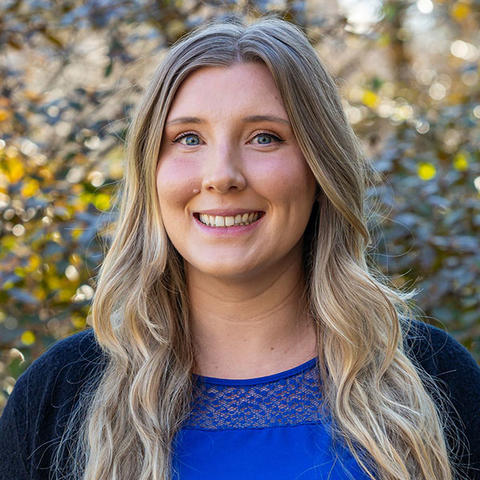Bukky Olugbeko ‘25 Named a Truman Scholarship Finalist

A proponent of criminal justice reform and the transformative possibilities of prison abolition, rising senior Bukky Olugbeko ‘25 was recently named a finalist for the Truman Scholarship, a nationally competitive graduate fellowship for promising public service leaders and agents for social change.
This recognition, extended to only a quarter of all applicants, reflects Bukky’s future potential as a legal advocate for communities impacted by inequities of the current carceral system.
Although Bukky was ultimately not selected as a Truman Scholar, applying gave her the opportunity to reflect upon and articulate her interests and goals - an outcome that was meaningful in itself as it not only clarified, but also strengthened, her commitment to public service. Below, Bukky shares a bit about her areas of interest and experience with the Truman application process:
Why do you believe prison abolition is an important consideration for criminal justice reform?
Our country has a problem with mass incarceration, which is driven by economic inequality and social systems that work both to sustain inequalities and to take advantage of them. Abolishing our carceral system must involve a future where institutional harm done by the carceral state is repaired through implementing preventative and rehabilitative alternatives for addressing crime. This includes strategies aimed at crime prevention, through providing care and access to resources like quality education, substance abuse treatment, and affordable housing.
How did you become introduced to the idea of prison abolition?
It was through courses on the theory, history and practice of abolition that I learned what abolition really is and the flaws of the carceral system. I first took an abolition class my freshman year that taught me about a lot of the issues within the carceral system and the myths we are taught about the police state. We read important abolitionist theories from Mariame Kaba, Ruth Wilson Gilmore and more, that explained what abolition work is about and where it comes from. I took another course on abolition theory in my sophomore year where we explored the roots of the prison system through the works of Foucault. In this class, we were really pushed to take an active role in abolition work rather than just attending class.
What are some things you've done to explore this topic outside of the classroom?
In addition to coursework, I volunteer with the Petey Greene Program which sends volunteers into prisons to tutor incarcerated people seeking their GED or taking collegiate courses. The humanizing effect of this experience on my perception of incarcerated individuals is one I wish more people had the opportunity to share in. I have also been an intern with the Abolitionist Law Center in Philly since May of 2023, through CPGC’s Philadelphia Justice & Equity Fellowship (PJEF) program. My time at ALC has inspired me to imagine the ways I can contribute to the abolition of our carceral state while working within the current justice system, which is now what I see myself doing once I obtain my legal degree. Lastly, this coming summer I’ll be working on an archival project aimed at highlighting and preserving the abolition work that has come out of SCI Graterford, Pennsylvania’s largest maximum-security prison.
What are your career plans and the long-term impact you hope to make in the future?
I plan to become a criminal defense lawyer and engage in public interest work by practicing human rights and public interest law at a non-profit organization that is committed to the transformation of our carceral system. I want to create change by representing incarcerated individuals, advocating for increased resources and structural changes for marginalized communities, and engaging legislators in changing policies that harm prison populations and targets of mass incarceration. I hope to advocate for criminal justice reforms and reduce entry into the carceral state by expanding access to quality education and abuse treatment and addressing economic inequalities.
Why did you choose to apply for the Truman Scholarship, and what does being named a finalist mean to you?
I applied because the Truman Scholarship fit my interests and goals as a junior pursuing a career in advocacy and public service. The foundation’s mission aligns with my experience with non-profit and advocacy work as well as my desire to effect changes to societal issues rooted in racist ideologies that promote inequality. Being named a finalist was really exciting. It felt like my potential for this work was being truly recognized and further pushed me to keep working toward my career goals.
What did you gain or learn from the application process?
Going through the application process really helped me outline a plan for the next 5 years of my life, whether I stick to it or not. It helped me figure out what I really want to do and how I want to get there. It also helped me figure out how to present myself as an applicant in the future, like what my strengths are, how my experiences have shaped me and why this work is important to me.
What advice do you have for future applicants?
I would say to take the process seriously but not to over-stress it. Really appreciate that it is an opportunity to develop yourself, network and possibly learn more about something you are passionate about. No matter what the outcome is. I personally do not regret the time I dedicated to the application despite not being named a Truman Scholar - I am truly grateful for the opportunity!




